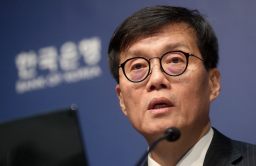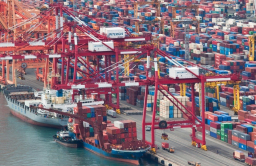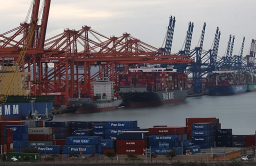-
KOSPI 2697.67 -22.97 -0.84%
-
KOSDAQ 734.35 -1.94 -0.26%
-
KOSPI200 359.62 -3.46 -0.95%
-
USD/KRW 1381 -7.00 0.51%
Korea’s export growth at 14-month low, adds to BOK rate cut views
Economy
Korea’s export growth at 14-month low, adds to BOK rate cut views
Exports to China fall for the first time since February, sales to the US decline for the first time since July 2023
By
Dec 01, 2024 (Gmt+09:00)
2
Min read
News+
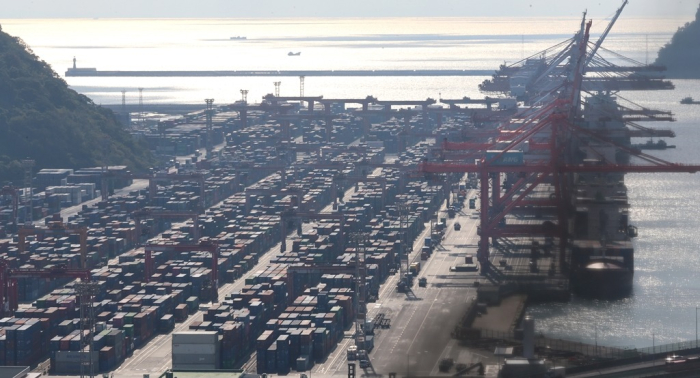
South Korea’s export growth fell to a 14-month low in November with shipments to the world’s two biggest markets the US and China down, adding to expectations that the central bank may cut interest rates further to prop up Asia’s fourth-largest economy.
Exports rose 1.4% to $56.4 billion last month from a year earlier, their slowest pace since Sept. 2023 when overseas sales fell 4.4%, data from the Ministry of Trade, Industry and Energy showed on Sunday.
The ministry said a strike at an auto parts maker and shipping delays due to bad weather contributed to the sluggish exports. Overseas auto sales fell 13.6%, their biggest drop since June 2020.
“We suffered from unexpected negative factors for exports in November including a decrease in car production due to a strike at an auto parts maker and logistics disruptions caused by bad weather,” said Minister of Trade, Industry and Energy Ahn Dukgeun in a statement.
Hyundai Motor Co. and Kia Corp., Korea’s two biggest carmakers, faced disruptions to local production after an auto parts subsidiary halted operations at a plant due to a labor strike over bonuses and other benefits.
DROP IN EXPORTS TO THE US, CHINA
Sales to China, Korea’s top overseas market, dipped 0.6% on-year, their first decline since February, while exports to the US fell 5.1%, the first drop since July 2023, according to government data.
The data comes even before US President-elect Donald Trump — who pledged to impose huge tariffs on major trading partners such as Canada, Mexico and China — takes office.
Trump's return to the White House is expected to take a toll on the Korean economy and companies, industry sources said.
Last month, the Bank of Korea (BOK) cut its economic growth forecast for this year and next by 0.2 percentage point to 2.2% and 1.9%, respectively.
Some economists, however, expect the economy to miss its 2024 growth target as industry output, retail sales and investment all fell in October.
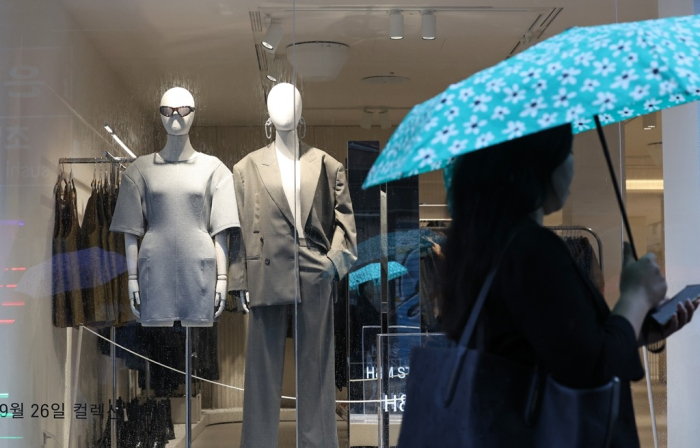
TO CUT INTEREST RATES MORE
The central bank is expected to cut interest rates further in the first quarter of 2025 to revive the economy, after unexpectedly lowering them for a second straight meeting last month, a survey by The Korea Economic Daily showed.
Nineteen out of 23 bond market analysts surveyed predicted another rate cut in the first quarter of next year according to the poll, conducted before the trade data was released.
Among those expecting further easing, 11 analysts said the BOK would slash its policy interest rates in February.
“It is hard to estimate the fourth quarter growth rate on Jan. 16 when the BOK holds a policy meeting,” said Kim Sanghun, an analyst at Hana Securities Co. “I expect a cut in February after Trump takes office.”
Write to Jung-hwan Hwang and Yeong-Hyo Jeong at jung@hankyung.com
Jongwoo Cheon edited this article.
More To Read
-
Nov 28, 2024 (Gmt+09:00)
-
Nov 12, 2024 (Gmt+09:00)
-
Nov 01, 2024 (Gmt+09:00)
-
Oct 24, 2024 (Gmt+09:00)
-
Oct 16, 2024 (Gmt+09:00)


